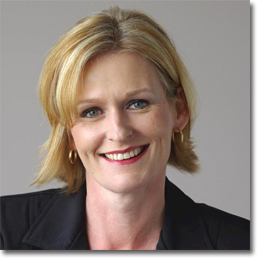A down payment with a catch: you have to give up the spare bedroom
Loftium startup gives buyers money for purchase, takes share of your Airbnb rental
“If only we had the down payment” may be one of the most frequent complaints among aspiring homebuyers everywhere.
Yifan Zhang, a 29-year-old entrepreneur who often hears this lament among her friends, has come up with a service that tries to help.
When she bought a town house in Seattle with her husband last summer, she knew the spare bedroom could generate extra income on Airbnb. But when she learned just how much they could collect each month — enough to cover the mortgage, and sometimes more — her entrepreneurial instincts kicked in: Why not front would-be homebuyers money for a down payment, and then collect a share of their Airbnb rental income in return?
That was how Loftium, a service in Seattle, came about: It will provide prospective homebuyers with up to US$50,000 for a down payment, as long as they are willing to continuously list an extra bedroom on Airbnb for one to three years and share most of the income with Loftium over that time.
“It’s for the people who don’t have the parents to help, or the high income to save while paying rent,” said Zhang, who founded Loftium with Adam Stelle, another entrepreneur, and who has had about 200 Airbnb guests in her townhouse. “They are just stuck trying to save for a decade or more before they give up.”
Loftium expects to appeal to young workers and families who are looking to buy their first home for roughly US$600,000 or less. The program is being introduced on a small scale in Seattle, but Loftium said it believed there were about 40 other cities where it could give prospective buyers the boost they needed. It hopes to branch out to four more cities — perhaps Chicago, Denver or Raleigh, N.C. — within a year.
It’s for the people who don’t have the parents to help, or the high income to save while paying rent
Saving enough money for a down payment has long been one of the biggest obstacles to homeownership. Though consumers generally need to put up at least 20 per cent of the purchase price to avoid paying mortgage insurance, first-time buyers put down far less on average — roughly 8.2 per cent, or about US$18,500 — and borrow roughly US$207,000, according to Inside Mortgage Finance, a publisher that tracks the U.S. mortgage business.
Using Loftium may allow buyers to borrow less or simply get a foot in the door, but it does require an unwavering commitment. As hosts, they must list their extra room year-round, with only eight “freebie” days reserved for their own use — and dozens of strangers are likely to walk through their door for up to three years.
“A lot of the people who like this idea are already living with roommates or their parents, so this is a better situation for them,” said Zhang, who, with her husband, lived with roommates in San Francisco before leaving for Seattle. Hosts will have the right to cancel up to three guests per year, should they feel uncomfortable with them for any reason.
Loftium will determine the size of the down payment it is willing to put up using an algorithm that predicts how much income a room can generate.
Generally speaking, the homeowners pay back Loftium through a revenue-sharing agreement — it is not structured as a traditional loan — in which the company collects roughly two-thirds of the monthly income. If the room isn’t booked nearly enough to generate the expected income, that’s Loftium’s problem, not the homeowner’s.
“We are trying to put as little risk on the homeowner as possible,” Zhang said. “That money up front is yours as long as you abide by the contract.”
Should a baby arrive — or the homeowners want to stop renting the room for any reason before the contract ends — they must pay their share of the nights remaining, plus 15 per cent of that amount, within a week, the 16-page contract says.
If the homeowner doesn’t pay what’s owed, Loftium reserves the right to put a second lien against the property, which means the company would be second in line to be paid back (behind the mortgage lender) after the home is sold, refinanced or foreclosed on.
So who is eligible for such an arrangement? Loftium is relying on the mortgage company to vet borrowers’ ability to repay their loans, but it will run its own background checks. Buyers will also need to qualify for a mortgage that meets standards put out by Fannie Mae, the government-controlled mortgage finance giant, which finances nearly a third of all new mortgages in the United States, according to Inside Finance.
To start, buyers using the program in Seattle will be able to apply down payments only to mortgages financed by Umpqua Bank, though Loftium said it eventually intended to work with a broader range of lenders (and rental services beyond Airbnb).
While Fannie hopes to work with Loftium in several more cities, it first needs to ensure that demand is strong enough, homeowners are abiding by their contracts and they are paying their mortgages. Changes in local laws, which could place new restrictions on Airbnb-esque arrangements, might also dim the program’s prospects.
Zhang’s extra room, which includes a private bathroom, fits just a queen bed and a chair, and is sparsely decorated with art from a thrift shop. The description on Airbnb highlights its convenient location and shows the view of the Seattle skyline from the kitchen.
“We didn’t buy it because of its looks,” Zhang said of her property. “We were thinking about budget and location.”
Cheers,
Comments are closed.









